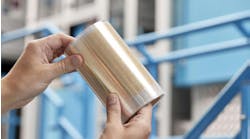Several environmental groups are calling on the U.S. Environmental Protection Agency to ban vinyl chloride, the chemical released after a Norfolk Southern train derailed in East Palestine, Ohio, on Feb. 3.
Leaders from the organizations delivered 27,570 petition signatures on Thursday to the EPA in Washington, D.C., according to a news release from Beyond Plastics, one of the groups calling for the ban. Also, among the groups involved in the petition was River Valley Organizing, an activist organization in the Appalachian Ohio River Valley, with an office in East Liverpool, Ohio, about 17 miles from East Palestine.
The petition states that burning vinyl chloride may create and release dioxins, which can cause cancer and disrupt the hormonal, reproductive, developmental and immune systems. The petition also noted that vinyl chloride production poses environmental justice risks as it’s often produced in low-income areas and communities of color in Louisiana, Texas and Kentucky.
Vinyl chloride is the primary building block for polyvinyl chloride (PVC), a plastic commonly used in construction piping. Beyond Plastics said there are safer alternatives to PVC. The group’s president, Judith Enck, noted that vinyl chloride has already been banned in refrigerants, aerosol propellants, drugs and cosmetics.
But many of the properties that make certain chemistries hazardous are the same thing that make them useful in a variety of applications and building blocks for other materials, Scott Jensen, the American Chemistry Council’s director of issue communications, remarked in March CP article on material substitution. “For many critical uses, no suitable substitutes can provide the same measure of safety and performance,” he says.
Shortly before filing the petition, the Vinyl Institute, a trade group for the vinyl industry, issued a statement calling Beyond Plastics' effort "irresponsible rhetoric."
"This week’s petition by Beyond Plastics seeking to ban vinyl chloride monomer (VCM) is a publicity stunt that irresponsibly ignores decades of credible science that shows VCM is safely and responsibly manufactured in the United States," said Ned Monroe, president and CEO of the Vinyl Institute. "Regrettably, Beyond Plastics has chosen to use the tragic events of East Palestine to advance deceptive and disproven claims about our industry that only serve to mislead the public. We invite those covering this week’s event to contact our organization for comment to ensure the facts regarding VCM and PVC are included.”
The Vinyl Institute highlighted the safety record of vinyl chloride and PVC as well as its usefulness in everyday products.
The Institute noted that "manufacturers of PVC and VCM adhere to some of the most stringent safety and environmental regulations in the chemical industry, citing a November 2022 letter from Occupational Safety and Health Administration Assistant Secretary Douglas Parker, commending the industry on its safety performance record.
Initially, the railway industry received most of the scrutiny related to the train derailment that led to the release and burn of vinyl chloride from five cars, carrying a total of 115,580 gallons of the material. But Norfolk Southern filed a lawsuit on June 30 claiming that Oxy Vinyls LP, Dow Chemical Inc. and GATX Corp., a global railcar lessor, bear some responsibility for the disaster under federal regulations.


